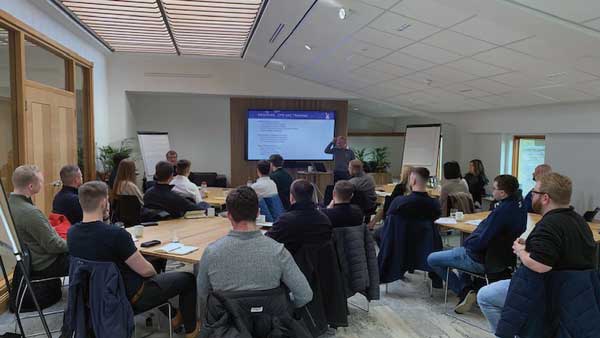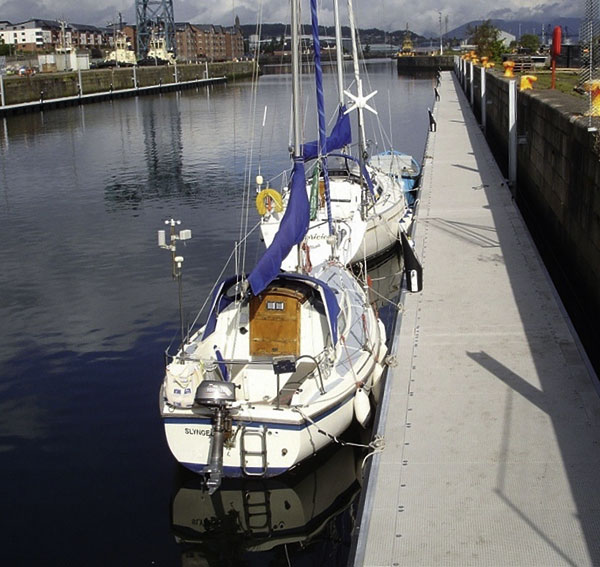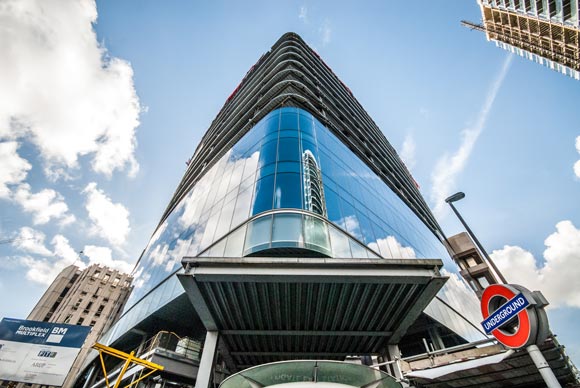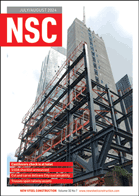Projects and Features
Galvanizing is the sustainable choice
A combination of long-lasting protection and ease of application makes galvanizing the finish of choice for many industries including construction, manufacturing, and agriculture.
By its very nature, the construction industry has a significant impact on the environment and it is said to account for 36% of worldwide energy usage and 40% of CO₂ emissions. It is no surprise therefore that the introduction of ever-more stringent environmental rules and regulations, as well as the high costs and ethical factors relating to industry, is seeing an increasing number of contractors looking to adopt more environmentally-friendly processes and turning to galvanizing.
At the forefront of the industry, Wedge Group Galvanizing, said to be the largest hot-dip galvanizing organisation in the UK, has over the past 12 months worked on a diverse range of projects. This includes the refurbishment of one of the busiest heritage railways in the country, the creation of a centrepiece for the new Digital Aviation Research and Technology Centre (DARTeC) at Cranfield University, and the construction of an iconic housing development in Mayfair, central London.
Hot-dip galvanizing is the process of coating clean steel with a layer of molten zinc to protect the item from corrosion and provide a long-lasting, durable surface. It is more robust than other coatings that only bond chemically or mechanically, and it has the added advantage of fully coating the steel. As a finish, it is not only highly effective, but is also extremely eco-friendly. A single, one-off treatment will coat a product both inside and out, providing a finish which can protect steel and keep it maintenance-free for over 70 years.
This means that the whole life costs of products protected by the hot-dip galvanizing process can be significantly reduced because there is no need for the expense, down-time and inconvenience of repeated on-site maintenance or replacement.
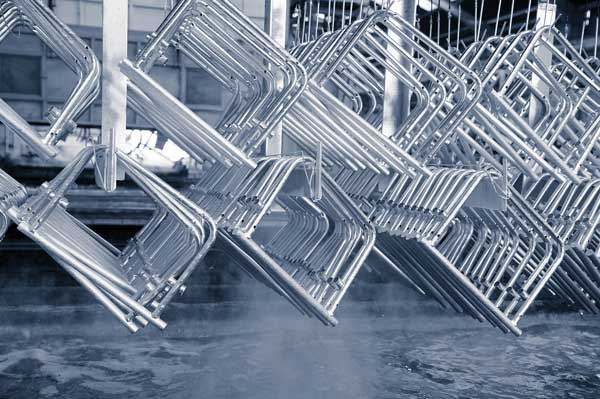
Not only does galvanizing lengthen the lifespan of steel, but it is highly energy-efficient throughout its production and whole lifecycle. The galvanizing process uses minimal resources to ensure a relatively low environmental burden. Zinc’s non-ferrous properties mean steel can easily be recycled after use, re-galvanized or removed and reused elsewhere.
While it has historic roots (it dates back to the mid-1700s), the emergence of new technologies and continuing investment by the industry means that galvanizing is a process that has continually moved with the times.
Developments such as high-velocity ‘smart’ furnaces, fume extraction units, and heat recovery systems have helped to optimise production and enhance performance, while the introduction of equipment such as inverters has delivered significant savings in power consumption.
And, though the metallurgy has remained largely the same over the centuries, that is now changing too – with the Wedge Group becoming the first galvanizing organisation in the UK to take the ambitious decision to completely remove lead and chrome from its process.
As a company, Wedge Group Galvanizing is leading the way by introducing a number of highly innovative and sophisticated elements to reduce waste, promote better use of resources, and improve energy efficiency. To improve both fuel efficiency and performance, all of its plants use the most innovative pulse-fired high velocity furnace systems, which provide high fuel efficiency, low heat loss, low emission levels and extends the life of the kettle.
Another example of how the company, and the wider industry, is cutting energy consumption is the re-use of ‘waste’ heat created from the furnaces used in the galvanizing process. All of its plants have been fitted with heat exchanger units that transfer the ‘waste’ heat generated back into the overall process for use within both the pre-flux and de-grease tanks. The company also has rainwater collection and harvesting systems which recycle rainwater back into the galvanizing process.
With the ongoing efforts being made within the construction industry to ensure that practises and procedures are as environmentally-friendly as possible, and with many subsequently adopting galvanizing as their finish of choice, the process is set to remain a leader in the race for a more sustainable world.
Wedge Group
is a gold sponsor of
Steel for Life







